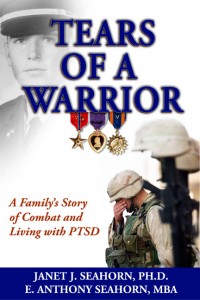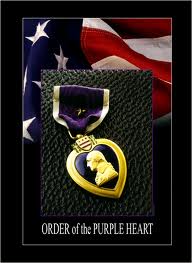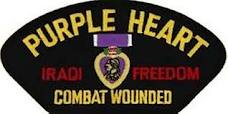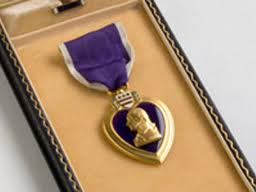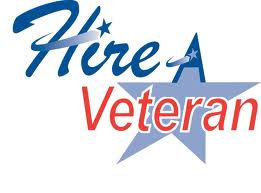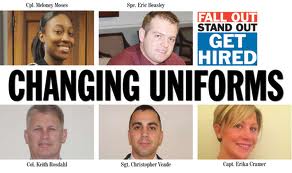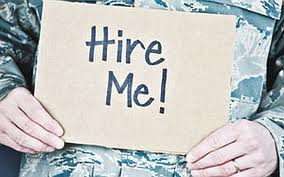Jul
12
CHASE’S MEADOW
Filed Under Aging, Dogs, Family, Fishing Therapy, Healing Waters, Journey, Life, Love, Peace, Pets, PTSD, Service Dogs, Tears of a Warrior, Tears of Joy, Veterans | Comments Off on CHASE’S MEADOW
by Tony & Janet Seahorn
The human heart and mind are amazing in their capacity to experience intense sadness and abundant gratitude at the same time. That lump in the throat is still there as are the tears that cloud my eyes. Yet, the weight of the death of our wonderful Chase seems to be a bit lighter.
Earlier this week, we visited Chase’s most beloved mountain meadow, high on the Snowy Range in southern Wyoming. It is a beautiful, alpine meadow filled with wild flowers and a running brook. This is the place we chose to spread his ashes and place a stone memorial on a wooded ridge overlooking the peaceful valley below.
We promised to make this journey after the early summer snow melt and before the wildflowers were in full bloom.
His very essence now glides in the winds and rolls gently with the flowing water. White and yellow flowers line his final path. He is at peace, as are we. And younger brother Bailey still romps through the brightly colored grasses chasing after his cherished tennis ball – a reminder that joy is always present around and within our souls.
As we paid our final respects it seemed as if Chase was giving us his final message:
I am now in my meadow; my ashes white as angels’ wings float with the Wind and flow through the mountain streams to places I never ran in life.
Peace and beauty will always surround me with a green and white and purple blanket of sweet columbines.
This is where I was finally meant to be.
Therefore, honor me not with tears of sadness, but with hearts of joyfulness.
Remember me with stories and laughter.
And most of all know that as much as you loved me I loved you even more.
Black Forest Chase
April 23, 1999 – January 4, 2013
Jun
25
FIELD OF HONOR
Filed Under Field of Honor, Flag Day, PTSD, Tears of a Warrior, Veterans, Wounded Warriors | Comments Off on FIELD OF HONOR
by Janet J. Seahorn, Ph.D
One thousand, full sized, American flags flew on a grassy green, long rolling boulevard in Cody, Wyoming.
It was their second annual Field of Honor Flag Day. Each flag was purchased on someone’s behalf. Sometimes it was for a family member who had served in the military. Some flags were given in honor of a special friend. And some were purchased to show respect and gratitude to an organization or group who has made a difference in their community. At any rate, up until this event, I have never seen so many large flags jam-packed in one place. Quite an impressive sight for these timeworn eyes.
This vista reminded me of a saying by Sara Teasdale, “My soul is a broken field, plowed by pain”. This field was created to honor those who sacrificed so much for their country, their communities, and their fellow Americans. Each flag was a tangible reminder of the broken souls, bodies, and hearts impacted by wars old and new. We brought two flags, one to commemorate an uncle who I had never met who died in WWII as part of Patton’s assault in Normandy; the other was to pay tribute to Tony and all those who served in Vietnam.
What made this a wonderful event were the charming individuals who attended the four days of celebrations. Much like the Vietnam Wall experience, many visited the Field of Honor to pay their respect, to view the sight of these amazing flags sometimes pounded ruthlessly by the heavy winds of Wyoming. There were times when some of us wondered if they would sustain such severe gusts. Yet, they did, every day, every night, and every gale. Several of the individuals we met were like the flags, tough, reliable, and persistent.
One veteran, John, was a ninety year old man who served in WWII in Africa, then Korea, and finally Vietnam. After our presentation he stated he would once again be visited by nightmares and visions from his past war conflicts. “They never seem to go away”, he declared, “and continually find their way into my thoughts and dreams.” The second individual, I watched from our position as guest speakers. He was a young man bouncing around a very small baby who couldn’t be more than a month old. After placing his tiny package into a near-by stroller, he just stood there, listening and watching. Shortly after our talk, I walked over to where he was standing and asked if he was a veteran. “Yes”, he responded. He had served several tours in combat. Much like the stories I told of a few of my university students who tried to return to school after war, he also dropped out, unable to withstand the innocence of a campus youth who have never been exposed to war’s trauma. Now he was in the process of reorganizing his life as a new father/husband, and finding a fulfilling purpose for his life. A life that he will have to fight for in order to live fully. A life with struggles. Much like his combat encounters, he will have to accept and move forward. A life with some sorrows that must be endured. And a life created with his special song that must be sung with great passion.
So here is wishing peace to all the John’s that went through too many battles and still struggle with their demons after such a very long time. And for all the young Patrick’s who are composing their own unique melodies.
May their ballads be full of love, laughter, and happiness.
May
2
Warrior’s Journey Home
Filed Under American Patriotism, Combat PTSD, Events, Healing, Journey, PTSD, Tears of a Warrior, Veterans, Warriors Journey Home, Wounded Warriors | Comments Off on Warrior’s Journey Home
by Janet J. Seahorn, Ph.D
Religion does not heal. People heal people. They do it through love, generosity and acceptance. Look. Listen. Heal. Oh so simple yet so difficult to achieve.
For four days we were with a group out of Canton, Ohio who were conducting a conference called the Warrior’s Journey Home. It started with the interesting collaboration of a church pastored by Dr. John Schlup and a Seneca wise woman, Shianne Eagleheart. Through Shianne’s sharing, she taught several members of the congregation the spiritual and physical healing of the Healing Circle. My brother, John, has been a living example of the power of Native American spiritual customs and blessings in Hot Springs, South Dakota.
The purpose of the Healing Circle is to give an individual a safe, nonjudgmental place to be – to listen – to learn and to share his/her trauma experience(s). Sharing is not an expectation like in many traditional therapy groups. It is merely an invitation if one is inclined to disclose his/her words. The sharing is only for those in the circle to hear. Stories must never be disclosed beyond the circle unless given permission by the person speaking.
So here is the really cool part of the sharing, there is a hand carved stick that looks like a walking stick. However, this stick is truly special because the only person who can speak is the person holding the talking stick. There are no time limits a person has to hold the stick and no one can get up and take the stick from that person. When the speaker is through disclosing his story he will place the stick back in its place or hand it to another person.
Oh, and another powerful trait of a Healing Circle is questions are never asked of the speaker. Wow, unlike modern therapy, there is no interrogation, advice, or “extra” comments. One may be given a hug or a small a glass of water by a listening member, but that’s it. By moving through the circle an environment of listening and caring is generated. Perhaps this is why the Healing Circle is such a special experience for veterans.
To make the experience even more powerful a drum and drummers may be present. Shianne’s partner, Bob honored the group with his handmade drum. Healing Circles often begin with native songs and drumming. The beat of the drum mirrors the rhythm of the heart. This mimics the ancient ceremonies meant to simulate a mother’s heartbeat when the warrior was in her womb. It calms the thoughts and anxieties of the attendees, and gives each person a way to begin and end the Circle experience. Like the mystical poet, Rumi, advises, the circle empowers many thoughts:
“What you seek is seeking you.”
“Most people guard against going into the fire, and so end up in it.”
One of my favorite old Chinese proverbs says it all,
“You cannot prevent the birds of sorrow from flying over your head, but you can prevent them from building nests in your hair.”
Dec
16
UNSEEN WOUNDS
Filed Under Black Lions, Combat PTSD, PTSD, Tears of a Warrior, Veterans, Vietnam Veterans, War, Wounded Warriors | Comments Off on UNSEEN WOUNDS
Guest Blog:
by Jim Fountaine, Vietnam Veteran
A man of eighteen years, barely dry behind the ears hears Uncle Sam’s call and in eight short weeks the change is as radical as a caterpillar into a Butterfly. Only this change has no beauty to it. A young boy is transformed into a soldier, an instrument of war.
The days of taking his girl to Lover’s Leap, skipping class to go fishing are gone. He is thrust into a world of violence against his fellow man. He begins to see the ravages of war. He learns to kill, not for sport or for food, but for territory, ideals. He does learn these skills with dedication and without question because he is doing what he is ordered to do!
Then, suddenly, he is thrust in a world of pain, death, blood and pure fear. He sees things that no amount of education or training has prepared him for. His friends are now few and close, yet distant because getting too close will cause pain when that friend is no longer there. The cold, damp, heat, loneliness become his constant companion. Sometimes he tries to deaden the pain with booze. He fights himself to bury what he sees. He keeps doing his job without emotion because he feels if he feels he’ll go nuts.
Then suddenly it’s all over and he sheds his uniform and finds himself back on main street U.S.A. When he sees his old school mates he finds he no longer has anything in common with them. He cannot talk about his experiences because they won’t understand. He finds he has had his youth robbed from him. He no longer trusts those around him with the ease he once did.
He has wounds you cannot see; not wounds of the body but wounds of the soul, the mind and the spirit, and no one can see them. No one can see the scars. He drifts back into a time when he felt the pain for real. He seeks out answers he cannot find. At times he feels out of control, so tries to find things he believes that will give him control like booze, drugs or he buries himself in work almost to the point of exhaustion.
He withdraws from relationships for fear of loss. He rejects authority for that authority brought him harm in the past. He feels alone in a vast world that doesn’t seem to care. He hurts, but no one can see the wounds; no one hears his cries for help. He is judged by people by what they see on the surface. They don’t see the Unseen Wounds in him. They don’t hear his silent cries and all he can do is ask, “Why can’t you see what this is doing to me?”
Aug
19
GAINING WISDOM
Filed Under Tears of a Warrior, Veterans, Vietnam Today, War, Wisdom | Comments Off on GAINING WISDOM
by Janet J. Seahorn, Ph.D
In the space between an end and a new beginning, life unfolds and we are given a greater understanding of the meaning of our journey.
So what is wisdom? How do I get it? How can I recognize it? Some would describe wisdom as insight, a type of intelligence gained from age, good judgment, level headedness, and knowledge. In my many years I have observed children who seem to have an inner knowing and awareness of the world far beyond their years and I have seen adults who have the impulse control and selfishness of a two year old.
For most of us, we may not always recognize wisdom but we pretty much know when someone does not possess it. Many of the wisest individuals that I know did not gain this trait by living an easy life. Indeed, much of their insight came after living and enduring a great many experiences, both good and difficult. My neighbor, Mary, who is now 104 years young, is a true example of a wise person. She grew up raised by a single mother after her father abandoned the family when she was a child. Her first husband died of a heart attack leaving her with four young children. Life was hard, but she kept working to support her children and herself. There was no time for complaining, only time for doing. Another trait Mary holds is a way of looking at the world in a positive manner. This is not to say she didn’t have her difficult moments, but she didn’t allow these times to last long. As she states, “I didn’t have enough energy to waste it on being negative. I had children to raise and work to do”.
So many of our veterans have the “Mary Factor”. War took much of their youth and innocence but it never took their will to go on, to live a productive life, to contribute to their communities and families. Life after combat has not been easy, yet it has given these warriors a sense of personal knowledge, and insight into the world. Many people who have endured far less do not always develop this trait. Veterans have a different kind of wisdom regarding the world and freedom. They understand sacrifice and pain, but most make a conscious choice to focus on more productive things. And they understand the wisdom of this old Rwandan Proverb:
You can outdistance that which is running after you, but not what is running inside you.”
And so, like Mary, most of us struggle to come to terms with the inside running, and such a journey collects its own wisdom.
Jun
26
LOOKING FOR HOPE
Filed Under Hope, PTSD, Tears of a Warrior, Veterans, War | Comments Off on LOOKING FOR HOPE
by Janet J. Seahorn, Ph.D
For several years we have written about the challenges and “crap” of PTSD. Perhaps it is time to dedicate the remainder of the year to things that are more positive, more inspirational. Yes, the thorny stuff will still be there, waiting for another opportunity to remind us that ### happens. Yet, I am reminiscent of some of the powerful stories from men and women who have overcome torture, isolation, and incredible emotional agony.
One such person is Nelson Mandela, the African leader who was imprisoned by the British for many years, and kept in seclusion for much of his stay. When asked how he kept his sanity he quoted from a poem, Invictus by William Henley. Two of my favorite verses from the poem go like this:
Out of the night that covers me,
Black as the Pit from pole to pole,
I thank whatever gods may be
For my unconquerable soul…….
It matters not how strait the gate,
How charged with punishments the scroll.
I am the master of my fate:
I am the captain of my soul.
Louis Zapparini, a decorated WWII aviator who spent forty-nine days on a raft in the Pacific Ocean only to be captured, thrown in a Japanese prison camp and brutalized by his captures for several years, found hope in forgiveness.
Victor Frankel lost his wife and all of his family members in German concentration camps. In his famous book, Man’s Search for Meaning, he describes the essential nature of being able to survive the unspeakable. It wasn’t the best looking, or the strongest, or smartest that lived through the ordeal.
For many who persisted in the face of enormous adversity it was living for something beyond oneself… having a purpose, an unfulfilled mission to one’s life that must be completed, no matter what the current conditions. This was what kept many going, day by day, and minute by minute.
When things get rough, where do you go to find your Hope? Is it your family or a special loved one? A loyal pet? A walk with nature? A smile from a stranger? Or perhaps an inspirational statement in a favorite book? Hope resides in the both the vast and tiniest of spaces. It can be as massive as a sun filled sky or a small as a butterfly.
It does not define itself in things, but in hearts and minds. It is never an empty box, although there may be times when our spirits feel such a void. Sometimes it is just right in front of us, and other times we must search deep to find and grab Hope’s fingers. It is always there, but our hands must be open to grasp its presence.
Just when the
Caterpillar thought
Her world was over
She became a Butterfly
May
25
REMEMBER ME
Filed Under American Patriotism, Memorial Day, Tears of a Warrior, Veterans, War | Comments Off on REMEMBER ME
by Janet & Tony Seahorn
Another Memorial Day. Another opportunity for a barbecue or a day off. Another few hours, perhaps, to sleep in and do absolutely nothing. Not a bad thing at all, yet not quite the purpose of the day.
What then is that purpose of a day to remember? By definition, Memorial means preserving the memory of a person or thing…something designed or adapted to preserve the memory of a person, an event, or anything belonging to past time… a record; (The Living Webster’s Dictionary, p. 595).
Originally it was a day set aside to commemorate and honor those individuals who died serving in war. I wonder, however, how many younger American’s know or understand this special day?
In preserving the reason for Memorial Day, what then should we remember? Perhaps it is not as important to reminisce about all of the bloodshed, awfulness, and destruction of war. More importantly it would serve us well to think of the characteristics of those who fought in any war, past and present. Characteristics such as courage, honor, selflessness. Characteristics such as humility, perseverance, and optimism. Perhaps another lesson of Memorial Day is to keep in mind the huge cost of war in hope those future generations will never have to pay such a price. You see, so many of our past and present military fought for precisely this reason. They went to war to keep not just their future sons and daughters safe, but all of America’s sons and daughter, grandsons, granddaughters…
Therefore, Memorials should not merely be a time for sadness, but also a time for joy and pride in the valor and goodness of spirit of our service men and women.
So this Memorial Day may each of us take time to say a prayer of gratitude to our military young and old and their families, and may each of us say with pride and vigor…
GOD BLESS AMERICA. THE LAND OF THE FREE
Mar
12
EXPLAINING PTSD IN A VIDEO
Filed Under Combat PTSD, PTSD, PTSD treatment, TBI & PTSD, Tears of a Warrior, Trauma, Veterans | Comments Off on EXPLAINING PTSD IN A VIDEO
by Janet J. Seahorn, Ph.D
For centuries societies have been trying to explain why warriors return from combat “stranger” than before they had left. In our book, Tears of a Warrior, we wrote about how the Roman’s sent their troops who had recently arrived back from battle to a tranquil farm away from the city to recoup from their emotional wounds.
It seems like every war had its own special term for such suffering; words such as combat fatigue, shell shock, warrior’s heart, etc. However, none of these really explained much about why the individual wasn’t able to put the war behind them and get on with their lives.
Joe Novak, another of our readers sent this YouTube video to Tony. For the person who has never experienced combat, this will be an informative eight minute clip which both “shows” and “tells” the effects of battle. For those who have been to hell and back, you may not need to view the film; you have already lived it. If you do, keep the last message in mind as you continue your healing journey back to your new normal.
http://www.greatamericans.com/video/Vietnam-Vets-and-PTSD;Veterans-Videos
Blessings and, once again, Thank You for Your Service.
Tony and Jan Seahorn
Both KINDLE & NOOK can be ordered directly from our website.
Feb
25
Purple Heart Warriors (Documentary)
Filed Under Purple Heart, Tears of a Warrior, Veterans, War | Comments Off on Purple Heart Warriors (Documentary)
by Tony Seahorn
Purple Heart Warriors (Documentary)
http://www.youtube.com/watch?v=kAtPzFvbJsI&feature=share
Feb
2
VETS, JOBS AND MISCONCEPTIONS
Filed Under Tears, Tears of a Warrior, Troops, Veterans, War | Comments Off on VETS, JOBS AND MISCONCEPTIONS
by Janet J. Seahorn, Ph.D
























